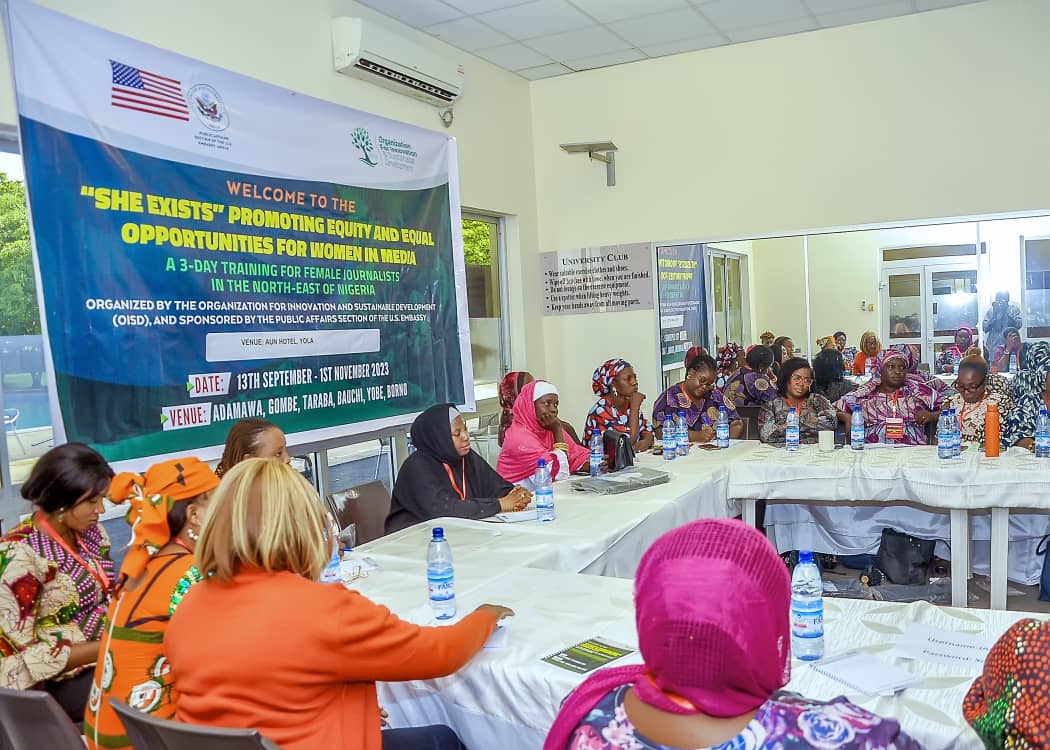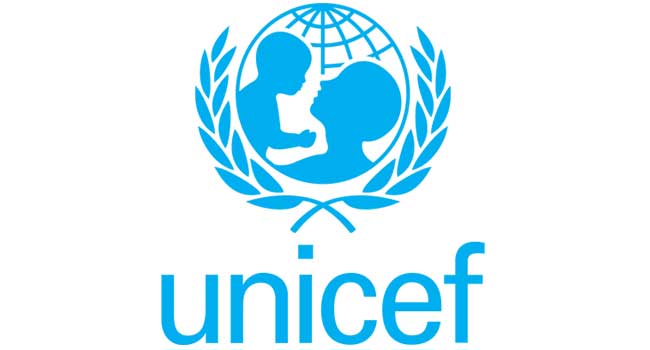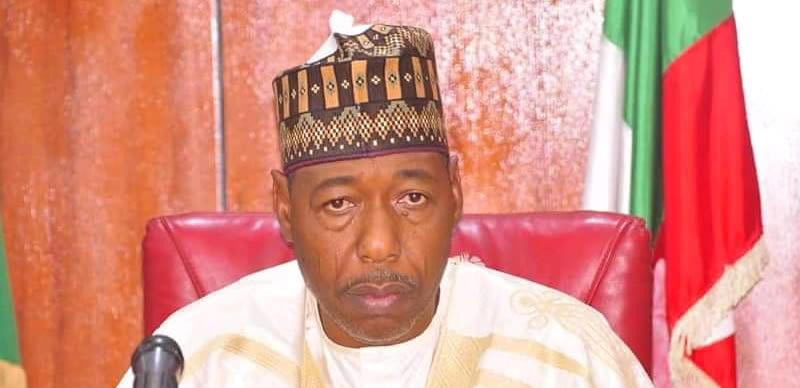Cover Personality
Musing on the PEF-PCNI Collaborative efforts at reconstructing Nigeria’s North-East
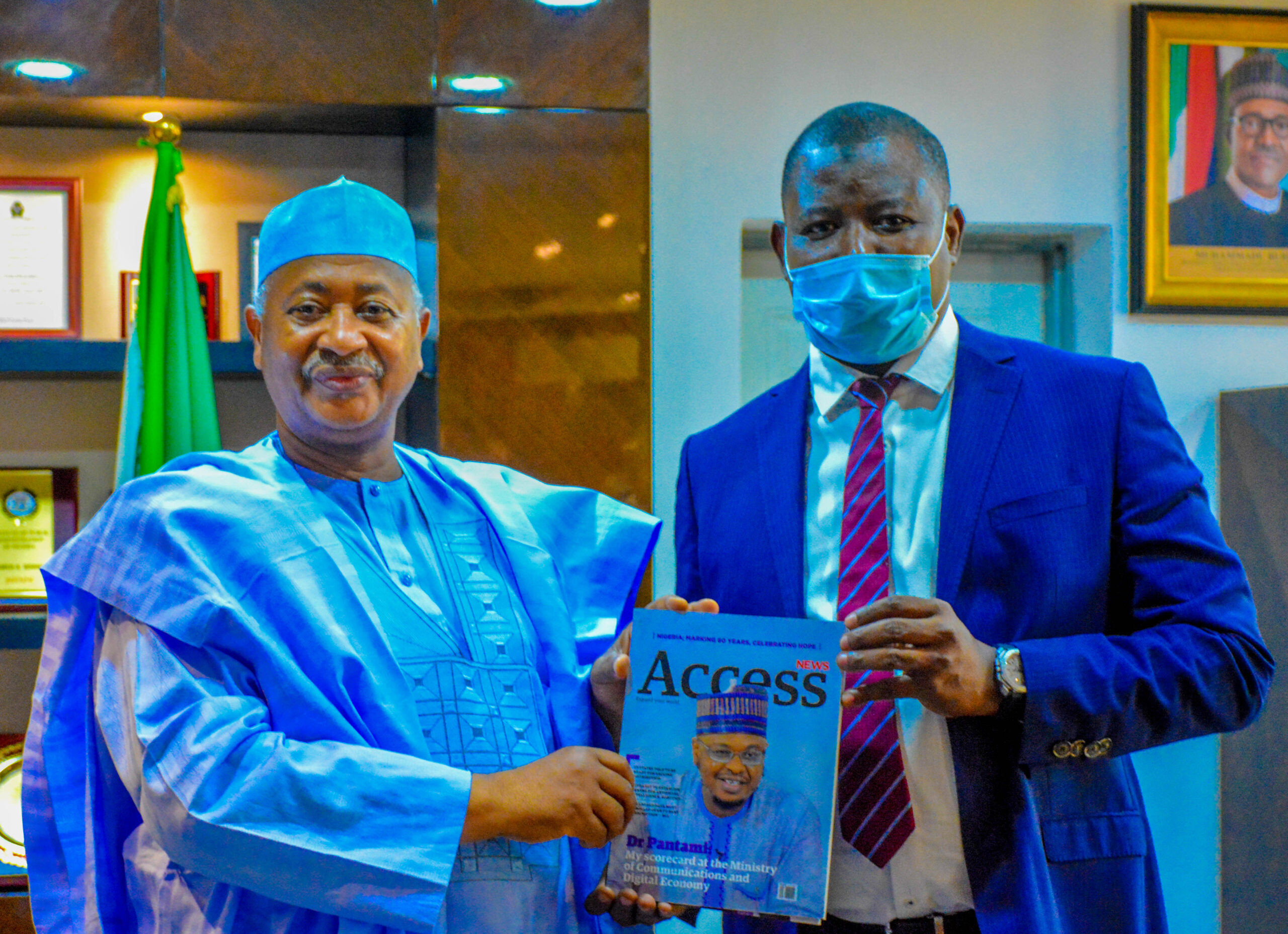
By Gwen C. Onyebuchi
Since 2009, the North-East region of Nigeria has been ravaged by the Boko Haram insurgency which has resulted in the loss of lives, and the displacement of millions of people. Over two million residents of the North-East have fled their homes and are compelled to live in Internally Displace Persons (IDP) camps located in many States and some have attained refugee status across Nigeria’s borders.
Consequent to the violence associated with the Boko Haram crisis, extensive damage to social, economic, health, roads and other infrastructure have been witnessed. Returning the North-East to normalcy has been one of the prime priorities of President Muhammadu Buhari’s administration. One of the measures adopted to restore normalcy is effective reconstruction and rehabilitation of social and physical infrastructure.
Therefore, President Muhammadu Buhari directed all agencies of the Ministry and oil and gas operators to invest massively in the reconstruction and rebuilding of the North-East of Nigeria. The directive became imperative given the relevance of the region to Nigeria’s security. Violence from the region has been taking its toll on the peaceful coexistence of the Nation.
The Petroleum Equalization Fund after careful deliberations decided to work with the Presidential Committee on the North-East Initiative, PCNI, now known as the North East Development Commission, NEDC, which have the statutory responsibility of leading the reconstruction and development of Nigeria’s North-East. The impact of PEF interventions is perceived across the Nation.
On the assumption of office in 2016, Mr Ahmed Abubakar Bobboi brought his wealth of experience in the industry to bear. His administration has been able to maintain and improve good relationships with stakeholders, especially in the downstream sector which is evidenced by the smooth distribution and availability of petroleum products nationwide.
As the first homegrown staff to be appointed Executive Secretary of the Agency, Mr Bobboi has over the years, encouraged self-development, capacity building, knowledge acquisition, discipline, accountability, efficiency and etiquette for improved job performance among his members of staff which has added value to the organization. He is completely detribalised and bears no animosity against anyone.
Attributable to his perspicacious achievements, his reappointment did not come as a surprise because his diverse experience and tenacity were glaring for all to see. He wasted no time in addressing the development of fit-for-purpose manpower to handle the ever-evolving dynamics of the downstream subsector. He is aware that the industry requires some important skill-sets going forward, and as a pragmatic visionary, he embarked on strategic staff training and development exercises, locally and internationally.
It is in recognition of the giant strides being recorded by his leadership at the PEF(M)B that AccessNews Magazine sought and secured an exclusive interview session with Mr Ahmed Abubakar Bobboi, the Executive secretary, Petroleum Equalization Fund Management Board to capture his thoughts on the Petroleum Equalization Fund intervention projects aimed at rebuilding North-Eastern Nigeria.
Excerpt:
AccessNews: Kindly tell us your name and designation?
My name is Ahmed Bobboi, the Executive secretary, Petroleum Equalization Fund Management Board.
AccessNews: So what is your assessment of the ongoing Petroleum Equalization Fund Projects across the North-Eastern part of Nigeria?
From what I have seen and the reports received, the projects are progressing steadily and some of the projects have been winded up and delivered. One of our intervention projects was implemented and handed over today at the University of Maiduguri Teaching Hospital. I just received the votes confirming that the projects have been handed over to the Management and the Board of the University of Maiduguri Teaching Hospital in Maiduguri and have already started utilizing the projects.
In Yola, at the Federal Medical Centre, many ongoing projects. The feedback I have been getting about the projects is encouraging. Some contractors that left the site for lack of remuneration have returned and continued with the projects after receiving the last trench of their Payment.
In Jalingo the same thing, the Federal Medical Centre Jalingo, the projects are progressing encouragingly. The supervisors of the Projects and the management consultants are happy with the quality of the ongoing work.
The College of Education in Damaturu, Yobe State have taken the delivery of vehicles directed to them through the projects. The vehicles are in use
Yobe State, Taraba State and Bornu State Civil Defence have also received their operation vehicles and the vehicles are being utilized.
We also have Agricultural Projects, the animal husbandry aspect, a part of it have been concluded. Several beneficiaries are beginning to see the dividends of the projects. The tree planting projects have progressed to a large extent, but because of the partial drought we experienced last year, we will revisit the projects and see how we can replant some of the trees that did not survive.
In Jalingo and other Local Government Areas, health and educational projects are ongoing, most of the projects are close to completion, and will soon be handed over to the end-users. In Donga, the Schools and Health Centres built were completed last year, and are waiting to be commissioned.
We would carry out an inspection visit to all the construction sites to ensure all the projects are properly executed, especially the projects that have been completed. We will ensure that the standards we all have agreed on, are met. The Management Consultants have been carrying out inspections on all the projects and are happy with most of the quality execution of the projects especially the completed projects.
The projects at the Federal Polytechnic Mubi and Jimeta Yola are under completion, finishing touches are what is left for it to be winded up.
In Gwoza Borno State, because of the insecurity situation, we are not able to go there immediately, but we are monitoring the situation reports and developments there, as soon as it is safe we will also go and access the projects to see the situation the projects are in. The health centres in Adamawa and Taraba State are particularly impressive. I was informed yesterday that one of the Health Centres in Pariya is almost winded up, the development is satisfactory and encouraging. We are delighted with it.
AccessNews: Most of these projects you mentioned Are there plans to replicate these projects to other regions in Nigeria?
If you remember clearly, these projects came about under the Presidential Committee on the North-East Initiatives (PCNI) was remodelled to the North-East Development Commission (NEDC). The mandate of the PCNI is to intervene in the North-East, to rebuild destroyed structures that suffered from the attacks in the Boko-Haram and other insurgencies.
If the Government decides to intervene in other regions, yes, we will look into our resources and see how they fit and how relevant they are. We will go on and intervene because it is a regional project. It is up to the Federal Government to decide on another region that should receive an intervention. I can assure you that we will use our experience in the North East to do the same in the other Regions when the Government ask us to do so if our resources permit it.
Can we talk about the synergy and collaboration between PEF and the PCNI or NEDC, how and what brought about the partnership, give us an insight?
In a nutshell, whatever PEF does, we want to leave an indelible mark. Whatever projects we carry out, we want those projects to speak for us. Just as we do our routine projects the bridging equalization that we are doing is already speaking for us in PEF. Anything that PEF does is approached with all seriousness and honesty of purpose. I think that is what PCNI now known as NEDC saw in us. We persistently insist on maintaining the quality and standards when it comes to our work.
We are constantly ensuring the quality, timeliness for the benefit of the people or the end-users. Our projects in the North-East are people-oriented projects. The PEF mandates are to ensure a social-economic investment. We do these things to find positive benefits and youthful results. We insisted that PCNI must follow due process during the implementation of PEF projects.
People see what we have done, and commend our good work. The quality is top-notch and the process we followed is in line with the Government laid-down procedures. With this understanding we have from the beginning, I think most of these project has earned us respect from the PCNI.
We insist that we must follow a process before payments are made, there must be confirmation that the work has been properly done, according to specifications and agreed standards. I think it is very essential to deliver a properly done project, otherwise, we obviously won’t earn any respect from PCNI and the beneficiaries of the projects.
Now there is agitation from other regions of the country, for the PEF to intervene in their regions. This agitation comes particularly from the Legislators, Senators, Members of the House, Governors.
They have been writing to PEF to come and do the same work in their regions. I tell you nobody wants to be associated with a bad name. They have probably seen good things about what we have done. So I think this is probably the main reason for the synergy and the mutual respect between PEF and all the stakeholders including Contractors, Consultants and projects managers.
Obviously, in a project that is as huge as this, there may be areas where you disagree or have different opinions but the most important thing is not the difficulties or the challenges you have to deal with. Rather, how you resolve these difficulties or challenges are very important. We resolve these issues or challenge them professionally and objectively whenever they arise. There are lots of challenges, but proper management and resolution have helped us.
AccessNews: Apart from the ongoing projects in the North-East, what other goals or CSR should Nigerians be on the lookout for in 2021 and beyond?
Before we commence the new batch of projects, we want to conclude these projects that we already have. For the year 2021, we want to focus on delivering all the ongoing projects. Some projects were implemented and delivered last year. In the next few months, we would be concluding projects and handing them over.
When the implementation of all the projects is achieved, we can look forward to the next intervention projects. At the moment we are handling these particular projects which are very important to this Government.
There are ongoing bridges and road projects in Niger Delta, we have already started the process because we have collected what we call Marine Transportation Allowance (MTA). This allowance is for the compensation of marketing companies that move petrol products, particularly in the Niger Delta region.
The Marketing companies use the boat in the river through the grids to deliver petrol products. We pay them because of the difficulty in the terrane in the Niger Delta. It is becoming exorbitant to transport products through grids. So we are making efforts to construct roads that are cheaper to manage so that marketers in the Niger Delta region will have access to these roads to transport petroleum products to their outlets. Usually, road transportation rates are more affordable than a Marine means of transportation.
We also intend to do a project in Bayelsa state, which is on the drawing board and we are seeking all approval through the due processes. We are far gone in the process. When the deliveries of these other projects are achieved, we will consider doing more. Our North-East projects also include installations of equipment, these buildings already have wonderful equipment which is reliable and built to last and manufactured abroad.
We are careful with the purchase and installation of these quality pieces of equipment. We will ensure proper maintenance to serve the country very well, that is our aim.
AccessNews: With all the ongoing agitations from some stakeholders who are trying to key into these projects, how are you going to harness these agitations and gives these individuals what they are requesting, for their different Senatorial Districts and Constituencies?
If we have the resources, why not give everybody what they are agitating for? But then we have a mandate which is very clear on the things we should do. When we have a Presidential mandate like in the North-East, we will look for the resources and do it, because PEF is trying to transform into a new infrastructural development agency.
The experience we have gathered with projects in the North-Est and South-South will come to bear when such challenges come up. These Senatorial Districts asking for interventions have their standards and more projects that are included in the National Budget. But what we are doing now is an exceptional intervention because of the depredation that happened in the North-East.
We are not praying for similar things to happen in any other region because we are praying for peace, stability and development. When there is peaceful co-existence people want infrastructural development. PEF is ever ready to carry out these mandates when the Government gives us the go-ahead to do it and the resources available.
Cover Personality
Olorundare Sunday Thomas: NAICOM’s light-speed improvements in the Insurance Sector
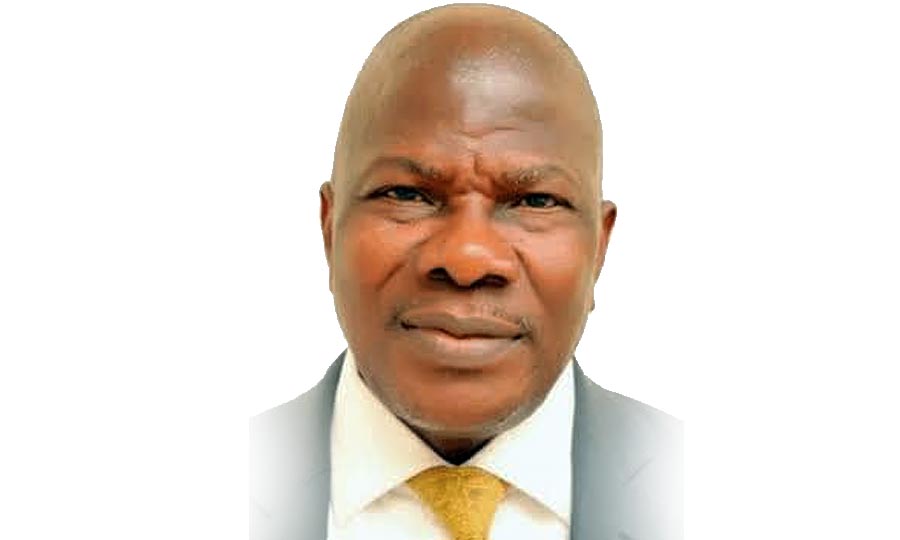
Olorundare Sunday Thomas’ appointment as the substantive Commissioner for Insurance and Chief Executive Officer of the National Insurance Commission (NAICOM), became effective April 30, 2020; having been appointed in acting capacity in Aug 2019 following the expiration of the tenure of Mr. M U Kari, the former Commissioner for Insurance.
Before this appointment, Thomas was the Deputy Commissioner in charge of technical matters at the Commission between April 2017 and August 2019. Mr. Thomas is a thorough-bred insurance professional with vast knowledge and experience in underwriting, regulation, and hands-on management of human and material resources spanning over four decades uninterrupted.
During these years, Mr. Thomas had traversed the entire insurance sector in Nigeria leaving indelible marks along the way. It is instructive to note that Mr. O. S. Thomas (as widely known) who served as Director-General of the Nigerian Insurers Association (NIA) between May 2010 and April 2017, brought his experience to bear on the job. It is to his credit that the Association successfully developed and deployed the Nigeria Insurance Industry Database (NIID) platform.
He holds a BSc (Hons) in Actuarial Science and an MBA in Finance both from the University of Lagos. He is also an Associate Member of the Chartered Insurance Institute, London and Nigeria, Member Society of Fellows of the CII London, Member, Nigeria Institute of Management among others.
With strategic policies and plans, driven to enhance market development, efficiency in service delivery, protection of consumers as well as stakeholder confidence in the insurance business, the industry has not only seen improved rating but keying to launch into new growth areas and levels.
When he was appointed substantive commissioner for Insurance by President Mohammadu Buhari, on the 3rd of May 2020, having been the Deputy Commissioner in charge of technical matters since 2017, many no doubt believed in his ability to bring in changes that would elevate the status of the sector.
Like an industry analyst described him, “Thomas has been properly seasoned for the task on hand, having served in the Commission for close to three decades and rose steadily to become the Director Technical, a position from which he retired with infallible track records of achievements. His appointment as the Director-General of the Nigerian Insurers Association (NIA) after leaving NAICOM gave him more penetrative insight into the activities of the Association, regarded as one of the critical cornerstones of the insurance industry in Nigeria before providence railed him back to NAICOM as the Deputy Commissioner in charge of Technical before his present position.”
Mr. Thomas has proven he can be relied upon; having successfully begun the drive to increase insurance penetration and market development in the country.
Mr. Thomas has promised to bring insurance services to all nooks and crannies of the country, stating that the 2021-2023 Strategic Plan has five goals designed to entrench effective and efficient service delivery, ensure a safe, sound, and stable insurance sector, adequately protect policyholders, and public interest, improve trust and confidence in the insurance sector and encourage innovation and promote insurance market development.
“We also know that with the engagement we have had with the Nigerian content, there is going to be an increase in the oil and gas business. As I speak now, we have a committee working on the guidelines to enforce the law in the Nigerian content. All the leakages we have had hitherto will be blocked,” Mr. Thomas said.
On the need to expand the basket the NAICOM boss said, two Takaful insurance companies have been licensed in addition to the existing two, adding that the Commission is conscious of the fact that the insurance sector is knowledge-based which informed the ongoing development of more actuarial analysts capacity in the industry as the first step of having more qualified actuaries in the country.
“We know that the drivers of the economy are those at the lower levels of the pyramid and so we are taking financial inclusion very seriously. It is now a national policy. For the insurance sector, we are far behind, but we are doing a lot of catching up. To this effect, four micro-insurance companies have been licensed and an additional two are on the verge of being licensed”
It is no news that the Nigerian Insurance Industry has been struggling to get its constancy among the financial service providers in the country’s economy. The liability can be assigned to diverse reasons, among them, recession, abhorrent belief system, unprofessional practices by administrators, distrust, disrepute, and, obviously, inadequate guidelines and control.
These hindering variables have restricted the extent of insurance industry development in the nation when contrasted with its counterparts in different climes where the insurance industry is the turn of financial development and social adjustment.
Although the industry’s operators and the controller seem to have put their fingers on these militating factors against its development, the pathway for conquering the difficulties appears to have been cast for certain troubles.
Numerous administrators, comprised of insurance guarantors, Brokers, Loss Adjusters, Reinsurers, and Agents have had an intermingling of perspectives about their assumptions and criterion for better guidelines from the public authority administrative office of the National Insurance Commission (NAICOM).
There is a contention that what the industry had seen before the appearance of the current administration could be likened to a burial ground stillness, because of what they viewed as “brutal administrative remedy” occasioning a frosty connection between the administrators and NAICOM.
For example, on the Insurance Brokers side, a large number of the administrators have needed to battle with immense fines and punishments for minor infractions, justifying the Nigerian Council of Registered Insurance Brokers (NCRIB) to concoct a mediatory stage to diminish the hazardous approaches towards its members.
Additionally, protection financiers have their story of burdens to tell from comparative fines and punishments from the Commission.
Much as it is important to disinfect the business and mend it of its pollutions, administrators maintained the point of view that guidelines ought to be with a superior human face to have the ideal impact.
The icy cold connection between the controller and the administrators was very obvious in the considered lawful cases planned sooner or later by the NCRIB against the Commission on the proposed execution of the States Insurance Providers (SIP) seen by Brokers as a passing toll to their generally delicate presence.
Additionally, the protection guarantors in a confidential meeting examined the choice of the Commission on its order on the Tier-based capitalization in court.
The climate in the industry has become more accomodating, with the desire for all the more consistent advancement because of a better working relationship and comprehension of the activities in the industry under the current authority of the Commission.
Lately, the Commission has been associated with more cordial and logical guidelines without the standard thing “director student relationship” that it was noted for.
Counsel appears to have now turned into the standard between the controllers and the administrators for a superior industry. Although the business, especially guarantors had been on the hotness concerning the requirement for them to fulfill the time constraint for recapitalization at first set for June 30, 2020, around from the Commission demonstrated that “following a survey of recapitalization plans by the administrators and different levels of the consistency noticed” the deadline was extended to December 31, 2020, a move that has received commendation from a cross section of administrators, monetary administrations specialists and investors.
Many were of the view that the underlying June 31, 2020 deadline had put the guarantors on the edge since they saw it could prompt loss of functional benefits, giving more deductions to the generally delicate condition of the protection business.
It is believed that the new system would eliminate the delay associated with the restoration interaction which regularly obstructs their focus on the center assignment of developing their organizations and go about as a disincentive to their expert practice.
While the difficulties of developing the Insurance industry through the determined indictment of the law on necessary insurance and guaranteeing financial inclusion across the industry are confronting the Commission, the current style of administration of the Commission is probably going to take the industry to its ideal objective. As a useful advance to accomplishing sectoral embrace of Insurance, it is encouraging that NAICOM had as of late been drawing in crucial partners, for example, the Lagos Chambers of Commerce and Industry (LCCI), held gatherings with Insurance Directors consistently with different insurance customers in the nation.
Since it is generally expected that the buck rests on leadership, regardless of whether positively or negatively, considerable credits need to go to the Commissioner for Insurance, Mr. Sunday Thomas for applying the Midas touch towards regulating the business on his assumption of office.
It is pertinent to note that Mr. Thomas has been appropriately prepared for the assignment, having served in the Commission for near thirty years and rose consistently to be appointed for the position of a Director Technical, a role from which he retired with reliable histories of accomplishments in his path.
Most certainly, his role as the Director-General of the Nigerian Insurers Association (NIA) after leaving NAICOM gave him more penetrative understanding into the activities of the Association, viewed as one of the basic foundations of the insurance industry in Nigeria before fortune railed him back to NAICOM as the Deputy Commissioner accountable for Technical before his current position.
No question assuming the current climate of harmony, agreement building, and compassion that have portrayed the tasks and attitude of NAICOM towards insurance administrators perseveres, it would simply involve time for the insurance industry to encounter the much-wanted sustainable development, for which incredible credits would go to the current authority of the Commission under Sunday Thomas and his amiable team.
Insurance as a technology-driven business achieved a feat during the period under review. The Commission completed the first phase of its portal. The portal started nine years ago, but until last year, nothing was happening. Today, the functioning portal is already up and running.
In an attempt to increase insurance penetration in the country as well as increase government participation in the insurance business, Thomas said the Commission is currently engaging state governments to draw them closer and bring the gospel of insurance to their doorsteps. In the last year, some states governors have been visited by the Commission, he said.
On the enforcement of compulsory insurance, the Commissioner stated that NAICOM has embarked on various engagement measures across the country. Aside from visiting state governments to solicit for their support, NAICOM is also working in collaboration with the Federal Road Safety Corps, Federal ministry of transportation, Federal Fire Service, among others.
Cover Personality
Nigerian Singer, Davido raises N151m day after posting account details on Social Media

Nigerian singer David Adeleke (a.k,a Davido) has raised more than N151. 4 million after he shared his account details on his social media platforms on Wednesday.
As seen on his official Instagram handle @davido, his bank details as at Thursday showed a total sum of N151, 458, 030. 52 in his account.
The global star after opening a Wema Bank account on Wednesday posted it on all his social media platforms and called on his friends to donate one million naira each ahead of his 29th birthday which is Nov. 19
He wrote: “If you know I’ve given you a hit song…send me money… “una know una selves ooo,” he initially wrote on Instagram before adding his account details, “David Adeleke.”.
“Omo N7m in 10 minutes keep goin!! I love y’all! aim na N100m, I wan clear my Rolls Royce from port abeg.”
“I know say una love me but una love me like this. Omo nah like joke I start this thing oh, N26m,” he wrote. Meanwhile, it has been naira rain for the music star as some fans also joined the donation train.
The development has sent Nigeria’s social media agog, with comments and reactions causing social media traffic.
Some prominent businessmen, philanthropists and musicians also made donations into his account.
With the donations, Davido is said to have become one of biggest socialite and social media influencer in Africa.
Cover Personality
Communications Minister, Pantami Becomes Professor of Cyber Security
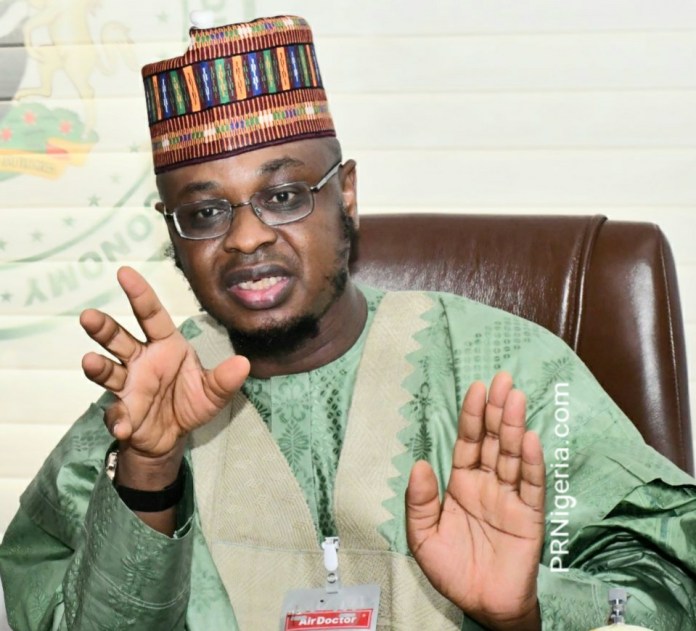
Minister of Communications and Digital Economy, Dr. Isa Ali Ibrahim Pantami has been promoted to the rank of Professor of Cybersecurity.
Pantami is among seven Readers (Associate Professors) promoted to Professor by the Governing Council of Federal Univerity of Technology Owerri (FUTO) at its 186th meeting held on Friday, August 20, 2021.
Other promoted from Readers to Professor are Engr. Dr Okechukwu Onyelucheya of Chemical Engineering, Dr. Alex I. Opara (Geology), Dr. Conrad Enenebeaku (Chemistry), Dr. Chikwendu Okereke (Geology), Engr. Dr. Lawence Ettu (Civil Engineering) and Dr. Godfrey Emeghara (Maritime Management Technology).
The Council also approved the recommendation of the Academic Staff Appointment and Promotions Committee (Professorial) for the promotion of nine Senior Lecturers to Readers and two Senior University Librarians to Deputy University Librarians.
An erudite scholar of information technology, Pantami who recently bagged the Security and Emergency Management Award (SAEMA) on Cybersecurity had lectured at Abubakar Tafawa Balewa University (ATBU), Bauchi, on ICT, before joining the Islamic University of Madinah as Head of Technical Writing in 2014.
He was appointed the Director-General and CEO of the National Information Technology Development Agency (NITDA) in 2016, before he was appointed the Minister of Communications and Digital Economy on 21 August 2019.
A senior lecturer at the FUTO told PRNigeria that the university committee is excited to have Pantami as one of its new seven Professors, even though the Minister as indicated that he would not receive remuneration because of his current position.
“We gladly welcome this new set of Professors, in our reputable institution. It is even more heartwarming to note that Prof. Pantami has already communicated to the University that he won’t collect salary for now because of his national assignment.
“As you are aware Professorial title on an individual connotes leadership and exceptional contribution at national and international levels in research, scholarship, teaching/mentorship and learning.
“In Nigerian Universities, a professorial appointment has been a prerogative of the Senate of the Universities. Because of autonomy, the criteria for the appointment of a professor varies from one university to another.
“A criteria for appointment of a professor is usually a process unless strong evidence indicates some waiver. The professorship is not a theory, but a practical aspect; an expert with the ability to profess his expertise in his field/profession.
“The procedure for appointment and conferment of a professor is annual and include an application by suitably qualified individuals through recruitment or promotion.
“The application is internally assessed by a panel of assessors (mostly professors) usually by the relevant members of a Senate standing committee of Appointment and Promotion (A&PC) of the University.
“Upon the committee’s positive assessment, the University may communicate to the applicant his appointment to the professorial position subject to a positive assessment of External Academic Assessors (usually three, one of which may be a reputable professor in Europe or North America).
“These External Assessors are independent of the applicant and are of professorial standing in a discipline related to the applicant’s core research and academic interest.
“The referees must not have supervised or collaborated with the applicant on any research/scholarly projects as well as must not be related whatsoever to the applicant.
“Therefore, in summary, appointment and promotion to a professorial position is a process and varies from university to university. University Senate is the final approving body for the conferment of professorial title on applicant and has also the power to waive certain criteria to confer the title when they are convinced that the applicant is qualified to have the title,” he said.
-

 Headlines4 years ago
Headlines4 years agoFacebook, Instagram Temporarily Allow Posts on Ukraine War Calling for Violence Against Invading Russians or Putin’s Death
-

 Headlines4 years ago
Headlines4 years agoNigeria, Other West African Countries Facing Worst Food Crisis in 10 Years, Aid Groups Say
-

 Foreign4 years ago
Foreign4 years agoNew York Consulate installs machines for 10-year passport
-

 News1 year ago
News1 year agoZero Trust Architecture in a Remote World: Securing the New Normal
-

 Entertainment3 years ago
Entertainment3 years agoPhyna emerges winner of Big Brother Naija Season 7
-

 Headlines1 year ago
Headlines1 year agoNigeria Customs modernisation project to check extortion of traders
-

 Entertainment2 years ago
Entertainment2 years agoMovie download platform, Netnaija, announces closure
-

 Economy2 years ago
Economy2 years agoWe generated N30.2 bn revenue in three months – Kano NCS Comptroller


